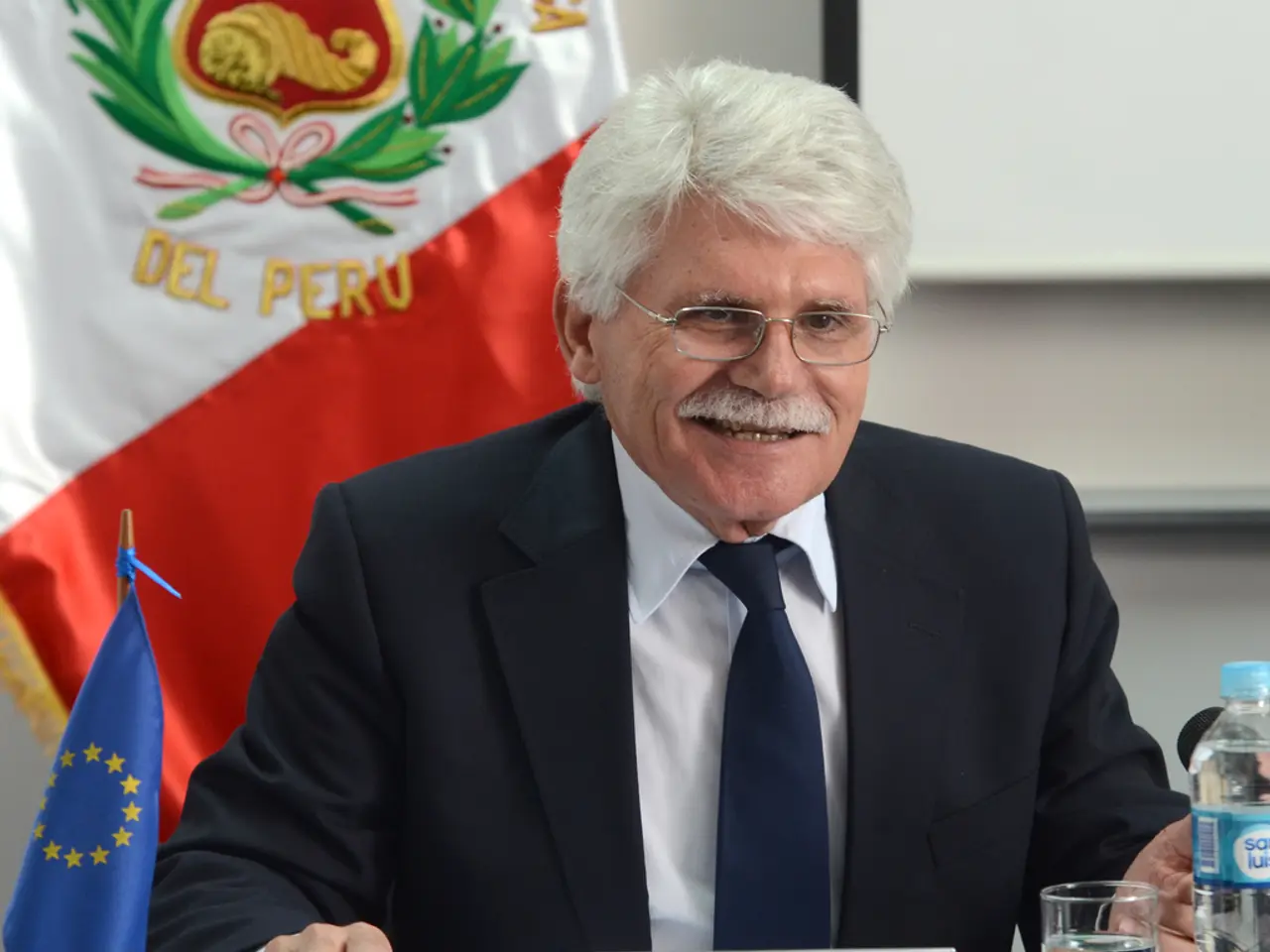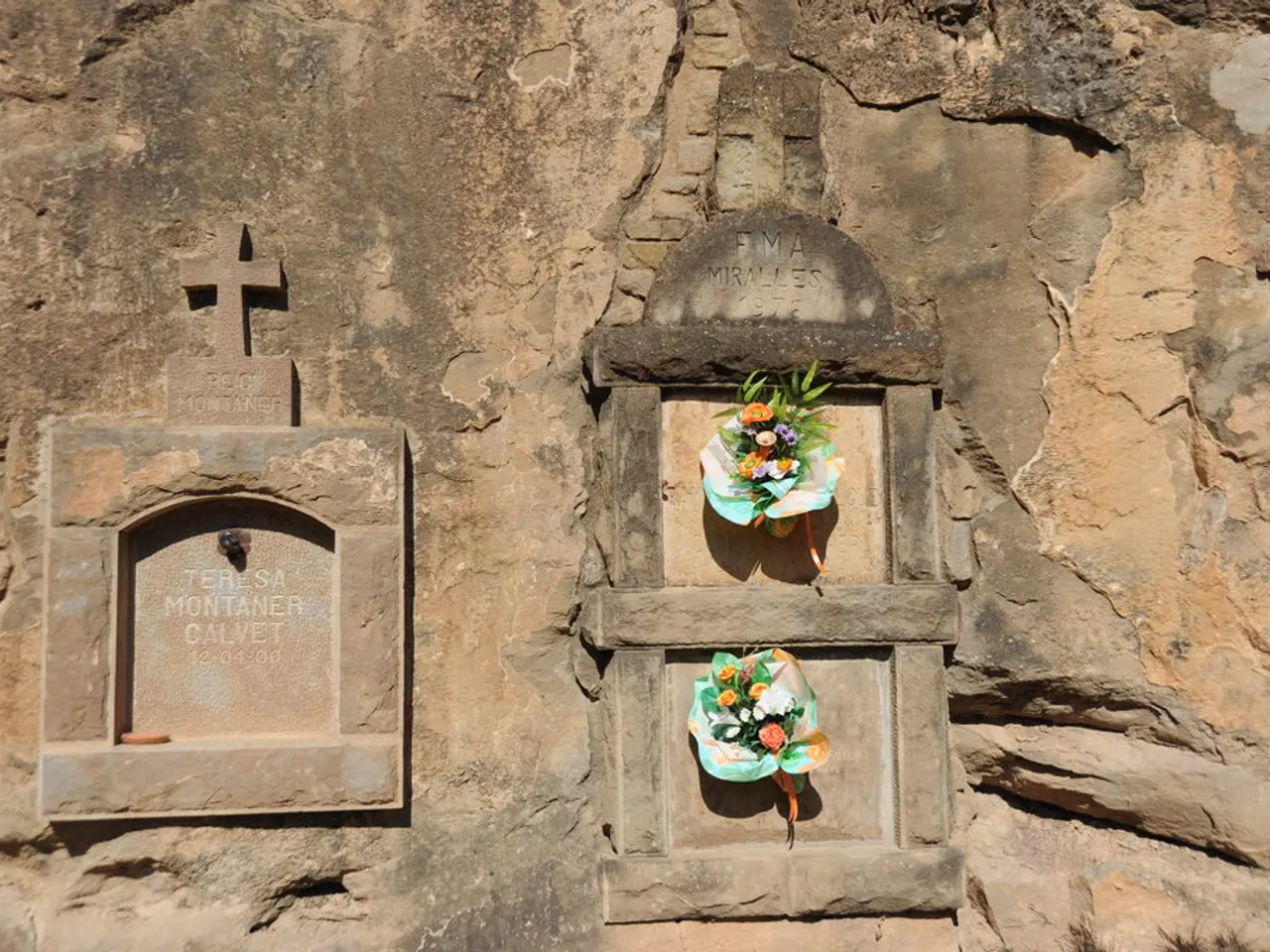President of Peru defies judicial decree concerning police amnesty
In a move that has sparked widespread controversy and international criticism, Peru's Congress passed an amnesty law in July 2025. This law, if signed into effect by President Dina Boluarte, would grant immunity to military, police, and civilians accused or convicted of serious human rights abuses committed during the internal armed conflict from 1980 to 2000 [1][3].
The law is currently awaiting the president's signature. If signed, it could potentially erase about 156 convictions and halt around 600 ongoing cases related to massacres, torture, forced disappearances, and other grave violations [1]. The amnesty is supported mainly by right-wing political parties, including Popular Force led by Keiko Fujimori, known supporters of the military [1].
However, the Inter-American Court of Human Rights (IACHR) has intervened, ordering Peru to suspend the amnesty law. The IACHR stated that the competent authorities must refrain from applying the law while the court looks into the legality of the amnesty [2]. In response, President Boluarte rejected the court's order, refusing to comply with the directive to halt the law's implementation [2].
This response indicates a growing conflict between domestic legislation and international human rights obligations. Internationally, human rights organizations and victim advocates have strongly condemned the law, describing it as effectively silencing victims, enabling impunity for state violence, and violating Peru’s commitments under international law [3][4]. These groups have vowed to appeal to international bodies to overturn the amnesty and hold perpetrators accountable [1].
According to Peru's Truth and Reconciliation Commission, there are more than 4,000 clandestine graves in the country as a result of two decades of political violence. Approximately 70,000 people were killed during this unrest, and approximately 20,000 people remain listed as "disappeared" [1]. A report by UN experts this month urges Boluarte's government to veto the law, arguing that Peru has a duty to investigate, prosecute, and punish gross human rights violations and crimes under international law committed during the conflict [1].
Rights NGO Amnesty International had urged the legislature to side with victims and reject the bill. The IACHR previously stated that Peru must immediately suspend the approval of the law and that competent authorities must refrain from applying the law while the court looks into the legality of the amnesty [2]. Critics say the legislation would impede access to justice and reparations for victims.
As the situation unfolds, the proposed amnesty law remains a contentious issue: domestically passed but internationally challenged, with Peru’s president dismissing the IACtHR’s suspension order amid widespread international criticism and efforts by human rights groups to seek justice through international mechanisms.
- The amnesty law, if signed, could potentially erase convictions related to human rights abuses committed during the internal armed conflict in Peru, resulting in a rise in controversy and criticism regarding the country's commitment to international human rights obligations.
- The Inter-American Court of Human Rights (IACHR) has ordered Peru to suspend the amnesty law, arguing that it violates the country's international law commitments and impedes access to justice for victims of war-and-conflicts, crime-and-justice, and terrorism.
- Human rights organizations have strongly condemned the law, describing it as an attempt to silence victims, enable impunity for state violence, and undermine the general-news of political accountability, particularly in the context of crimes under international law.






